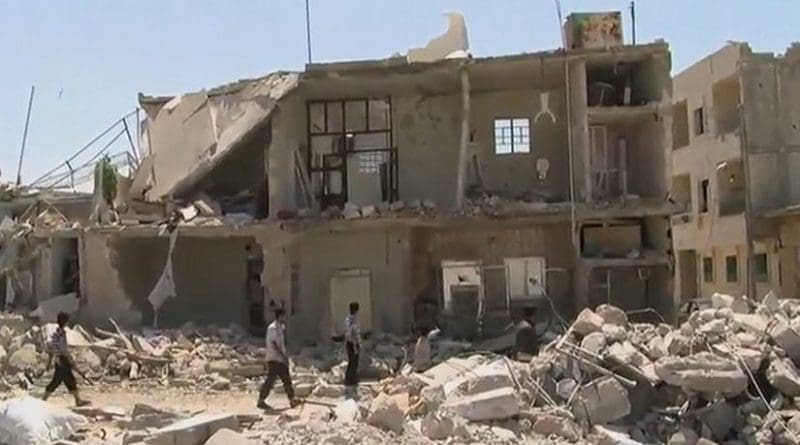Syrian Government Forces Coordinated Chemical Attacks On Aleppo, Says HRW
Syrian government forces conducted coordinated chemical attacks in opposition-controlled parts of Aleppo during the final month of the battle for the city, Human Rights Watch said Monday.
Through phone and in-person interviews with witnesses and analysis of video footage, photographs, and posts on social media, Human Rights Watch documented government helicopters dropping chlorine in residential areas on at least eight occasions between November 17 and December 13, 2016. The attacks, some of which included multiple munitions, killed at least nine civilians, including four children, and injured around 200.
The attacks took place in areas where government forces planned to advance, starting in the east and moving westwards as the frontlines moved, Human Rights Watch said.
“The pattern of the chlorine attacks shows that they were coordinated with the overall military strategy for retaking Aleppo, not the work of a few rogue elements,” said Ole Solvang, deputy emergencies director at Human Rights Watch. “The United Nations Security Council shouldn’t let Syrian authorities or anyone else who has used chemical weapons get away without consequences.”
The UN Security Council has yet to take action since a UN-appointed investigation, known as the Joint Investigative Mechanism, identified military units responsible for earlier attacks using chlorine in Syria. The Security Council should impose sanctions on senior leaders in the chain of command, Human Rights Watch said.
Human Rights Watch called on the Syrian government to immediately stop using chemicals as weapons and fully cooperate with the UN-appointed investigation.
The 192 state parties of the Chemical Weapons Convention should take steps to address Syria’s continued violation of the treaty’s most basic prohibitions and ensure compliance in order to bolster the customary international norm against chemical warfare, Human Rights Watch said.
Syrian government helicopters have dropped chlorine on opposition-controlled territory at least since April 2014. Chlorine has many civilian uses, but the 1993 Chemical Weapons Convention, which Syria joined in October 2013, bans the use of the toxic properties of any chemical as a weapon. Human Rights Watch has also documented that Syrian government forces used sarin in attacks in August 2013, and that the Islamic State (also known as ISIS) has used mustard agent as recently as August 2016.
The most recent chlorine attacks took place during a final push by Syrian government forces and its allies to wrest control of eastern Aleppo from armed opposition groups. After a period of relative calm, Syrian government forces and its allies resumed military operations in Aleppo on November 17, starting with intensive aerial bombardment. The battle continued until December 13, when the parties agreed to a ceasefire and many of the fighters and civilians in eastern Aleppo were evacuated.

